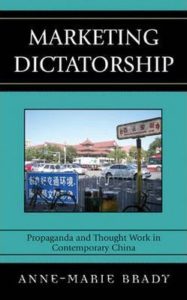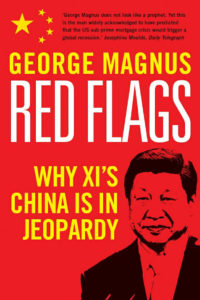Chinese students poured into Australia and New Zealand in their hundreds of thousands over the past 20 years, paying sticker prices for university degrees that made higher education among both countries’ top export earners, The Washington Post reports:
Now, as a more-authoritarian China projects its influence deeper into the South Pacific, attempts by Chinese students and diplomats to interfere with anti-Beijing dissidents and stifle free speech on campus pose an uncomfortable challenge for both U.S. allies……The most visible flash point is on campus. Students who support and oppose the Chinese Community Party have spent recent days erecting, ripping down, and restoring walls covered with cards and Post-it notes calling for freedom in Hong Kong at universities in the Australian cities of Sydney, Melbourne, Brisbane and Hobart, and in New Zealand.
 “Beijing’s influence on campuses is responsible for widespread self-censorship by universities and academics in Australia and New Zealand,” said Clive Hamilton, a professor of public ethics at Charles Sturt University in Canberra and author of “Silent Invasion: China’s Influence in Australia.”
“Beijing’s influence on campuses is responsible for widespread self-censorship by universities and academics in Australia and New Zealand,” said Clive Hamilton, a professor of public ethics at Charles Sturt University in Canberra and author of “Silent Invasion: China’s Influence in Australia.”
“The events of the last couple of weeks on Australian campuses have proved to be a serious escalation of Beijing’s interference,” he said, raising concern over what the National Endowment for Democracy calls China’s sharp power.
In Australia, officials are so concerned about Chinese influence that the attorney general has asked his department to examine why 14 Confucius Institutes — Chinese-funded education units within Australian universities — have not been registered as agents of foreign influence under a new law directed at Chinese espionage, influence and propaganda, The Post adds:
 At the University of Canterbury in Christchurch, New Zealand, a Confucius Institute shares a building with the office of Anne-Marie Brady (author of Marketing Dictatorship), a professor who has researched Chinese government influence. Brady has complained of threats, break-ins at her home and attempted sabotage of her car. Police investigated but were unable to identify a culprit.
At the University of Canterbury in Christchurch, New Zealand, a Confucius Institute shares a building with the office of Anne-Marie Brady (author of Marketing Dictatorship), a professor who has researched Chinese government influence. Brady has complained of threats, break-ins at her home and attempted sabotage of her car. Police investigated but were unable to identify a culprit.
The Belt and Road Initiative has enabled China to extend its political and economic influence, notes Felix K. Chang, a senior fellow at the Foreign Policy Research Institute. Some have argued that one day such influence could bring about a new “Chinese world order.” If that is truly the BRI’s aim, then it is an appropriately audacious one for an initiative that Chinese President Xi Jinping once hailed as China’s “project of the century.”
 Under Xi, China has become a large, confident power both at home and abroad, but the country also faces serious challenges including debt, “the middle income trap,” the renminbi, and an aging population, George Magnus argues (above). In his recent book, Red Flags: Why Xi’s China is in Jeopardy, he observes that Xi’s authoritarian and repressive philosophy is ultimately not compatible with the country’s economic aspirations.
Under Xi, China has become a large, confident power both at home and abroad, but the country also faces serious challenges including debt, “the middle income trap,” the renminbi, and an aging population, George Magnus argues (above). In his recent book, Red Flags: Why Xi’s China is in Jeopardy, he observes that Xi’s authoritarian and repressive philosophy is ultimately not compatible with the country’s economic aspirations.
How do the political challenges at home and abroad threaten China’s continued rise? Can Xi Jinping, who may be president-for-life, be open to reform? George Magnus is an associate at the China Centre at Oxford University, research associate at the School of Oriental and African Studies (SOAS), University of London, and formerly chief economist of UBS.
Technologies developed by Chinese firms are taking shape in an environment where space for debate about their applications is closed off from public scrutiny. Listen to @He_Shumei, @ShanthiKalathil and @Walker_CT discuss this & more on NED’s Power 3.0 podcast bit.ly/2RDSyLg).







